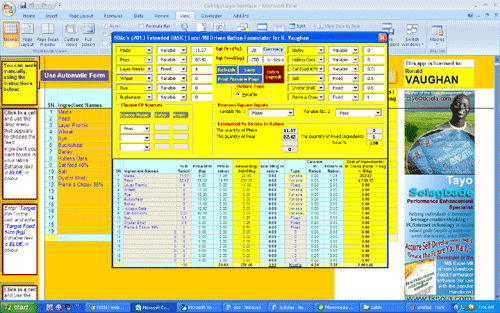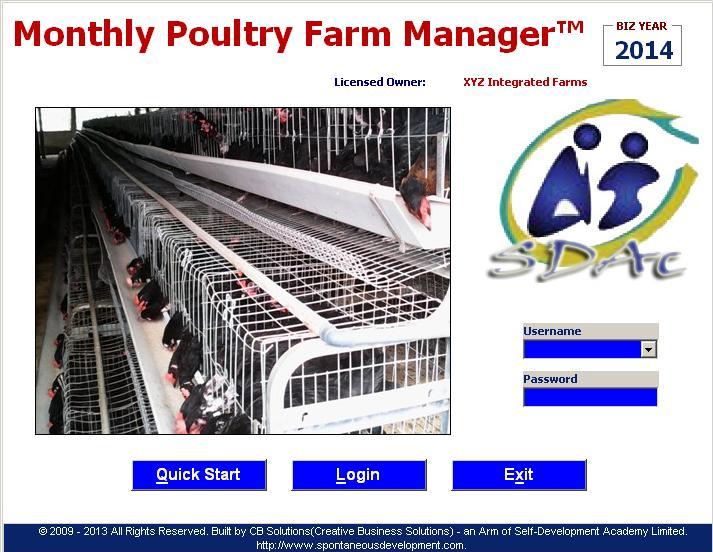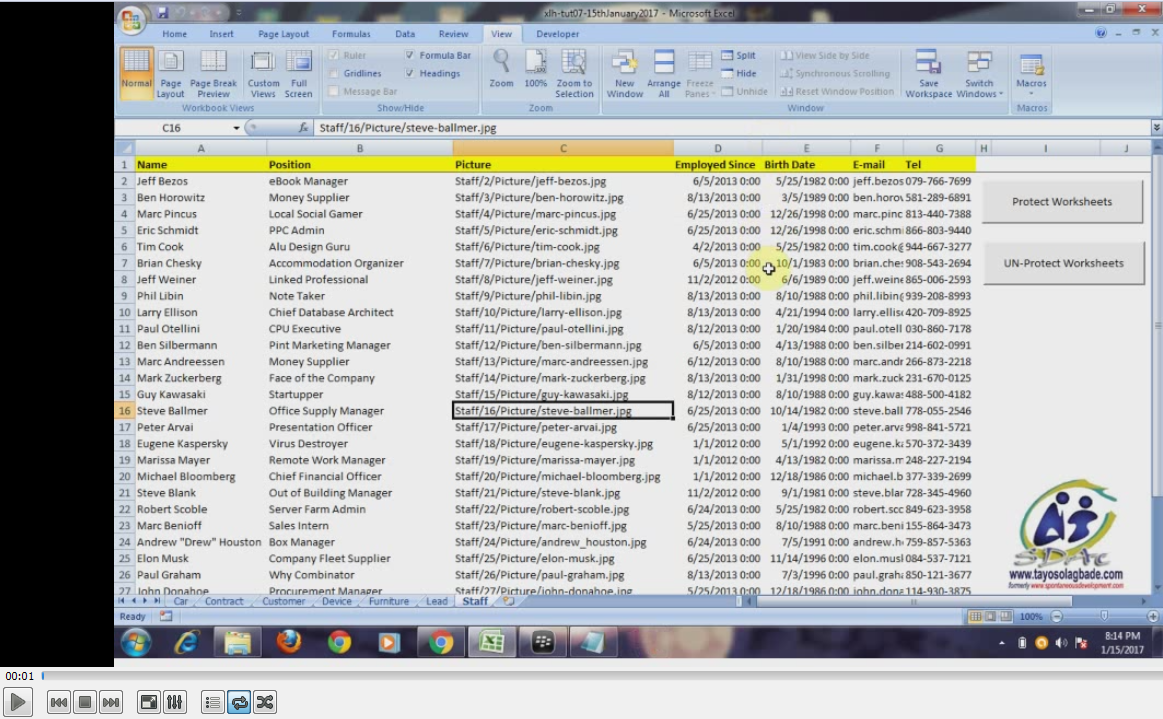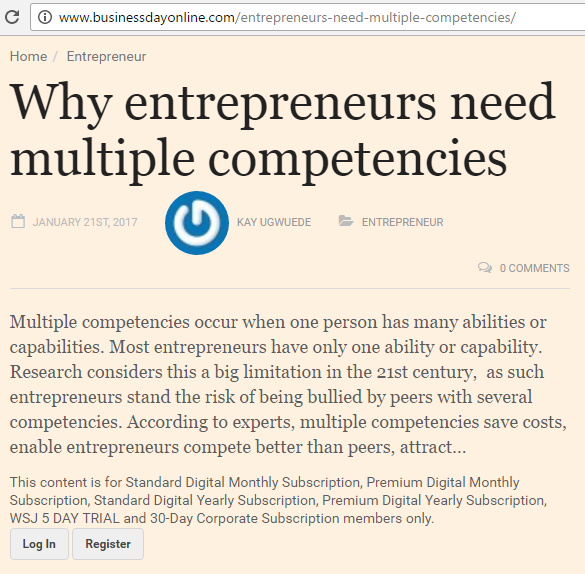Findings from a 2013 questionnaire survey I conducted of Farm CEOs in Nigeria, for an international agribusiness paper I was engaged to write revealed 55.6% bought commercial feed (from “2 sources” or “anywhere they can find”).
66.7% of that percentage said their animals’ performances varied noticeably with different sources of feed.
Their farm output tended to fluctuate as a result – and that naturally bothered the CEOs.
Hen Day Percentage (HDP) data auto-charted – in September 2013 – using my Excel- VB Poultry Farm Manager software on a layers farm in South West Nigeria suggested the trend noticed from the survey was accurate.
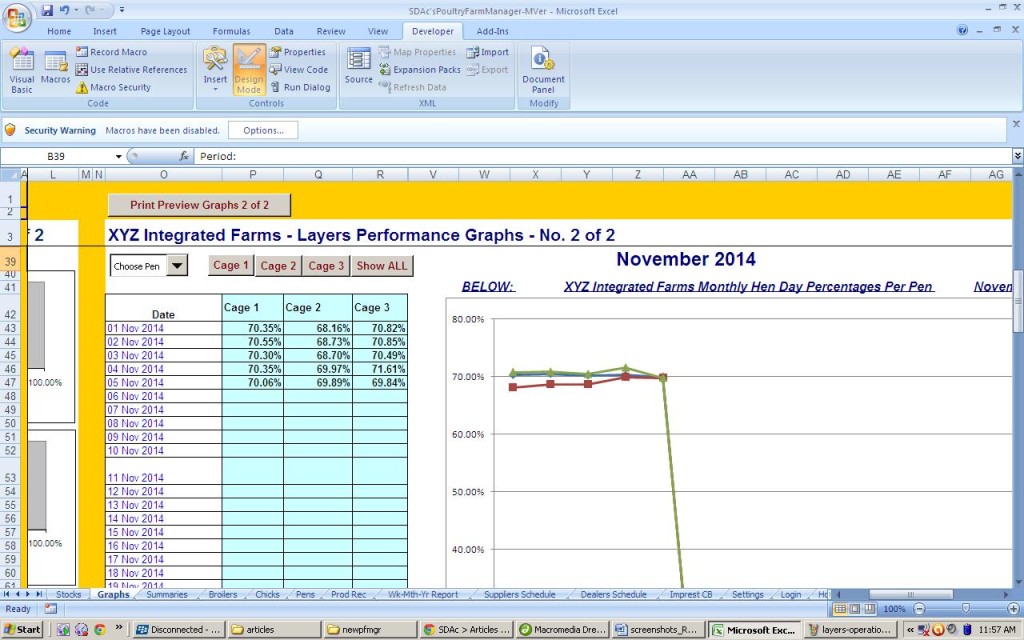
When the two farm managers were asked about a sharp downward slope of charted HDP data, over a one week period (from above 70% to between 55 and 65%), their checks revealed it coincided with their use – due to cash flow problems – of feed from a different supplier!
Customizable Excel-VB driven tools can help such farmers consistently formulate their own feed to specification.
More predictable livestock performance and reduced feeding expenses will occur, and ultimately lead to increased profits. See study’s full survey results in the PDF paper – click here to learn how you can get a FREE copy.
Excel-savvy extension workers can be selected to attend practical Excel-VB training – with deliberate focus on real-life farm solutions development.
It’s not likely that farm CEOs will be able to find the time to learn MS Excel Automation – even though it’s obvious that they readily embrace the flexible, and affordable Excel based solutions that can be had.
This is why I have continued to argue through my writing on Best Practice Farm Business Management, that Extension Professionals will be best placed to deliver the customizable low cost data handling and report generation solutions to farm businesses using MS Excel VBA.
In the agribusiness paper on this subject, I made the following suggestions about what extension workers need to do, to develop this valuable competence, so they can become better able to help Farm CEOs:
1. Each must have sound understanding of feed formulation science
2. Classes and useful text for self-study should be provided for those lacking – and their competence verified.
3. Next, they either learn Excel-VB programming – or engage someone who does. If the latter, we recommend they still learn some Excel-VB, so they can modify the software in future.
4. Step-by-step instructions (with annotated screenshots) should be provided for farmer-users.
5. Tools: PCs, preferably laptops, since battery power makes work possible in absence of continuous power. In Nigeria, where power supply is unreliable, this is important. A farmer may not initially be keen to put on his/her generator, just to see new feed formulation software!
6. Solutions developed must be adapted to suit MS Excel versions on farmers’ PCs. One client refused to replace his Excel 2003 with 2010 version because it looked so different. My Ration Formulator™ is built to be compatible with old and new/future MS Excel versions.
7. Encourage Farmers to Develop Indigenous Knowledge Systems: Years of supporting farm CEOs has revealed one fact: Smallholder farmers are keen to collaborate with “developers” of low cost “easy-to-use” software that can help them.
A phone conversation I had with a Canada based Farm Project Manager – Ronald V. – on 14th November 2013 is instructive with regard to the last point mentioned above.
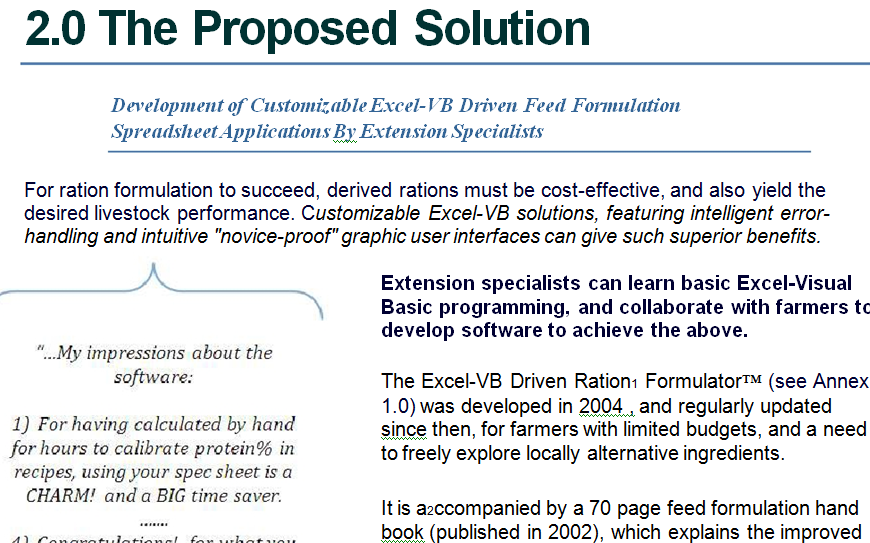
He’d bought my Ration Formulator via Paypal (sent to my brother-in-law in the UK) some weeks earlier. Findings from a USA university’s study had led him to adopt peas usage in rations fed to pigs that made replacement of Soya bean possible, with no apparent negative impact on performance.
His nutritionist had advised using Soya beans in a feed formulation application built for pigs. But the need to reduce variable costs drove him to test the university’s model. He replaced the data for Soya beans he’d posted in my app, with that for peas. Months after, he was still getting good results!
He ended the call by suggesting my Excel-VB app featured be modified to cater for pigs as well (with regard to their elaborate amino acids balancing needs).
That “suggestion” from him, is a good example of how farm business solutions can evolve based on user feedback for a while, before their features can be considered adequate for most possible scenarios.
My interactions with another farm CEO, this time in Africa, provides another useful illustration:
In Nigeria, an Ibadan, Oyo State – Nigeria based catfish farm owner I spoke with on phone, in the course of gathering information for my paper, explained that he regularly explores use of alternative ingredients.
After careful laboratory analyses, he hads found a way to use noodles waste, and cassava flour (known locally as “Gari”) up to 40% in formulated rations, to reduce the farm’s feeding costs.
According to him, the performance of his fish had not suffered.
Summary: Extension specialists can develop cost-effective customizable Excel-VB solutions to help farmers tackle pressing challenges they face
Discoveries that occur in the process – like those mentioned in the anecdotes narrated above – when shared, can convince other farmers to also adopt the superior Excel solutions.
That’s one of the ways my featured Excel-VB driven Ration Formulator™, and its Excel-VB Poultry Farm Manager™ sibling have been successfully introduced and sold, to Farm CEOs within and outside Africa, over the years.
It is my considered opinion that other extension professionals can do what I’m doing – and the farm business industries we serve, will be better off in the long run!
Related Article: Story: After Resolving Layers Feeding Problems, Selling Increased Eggs Output Became a Headache!

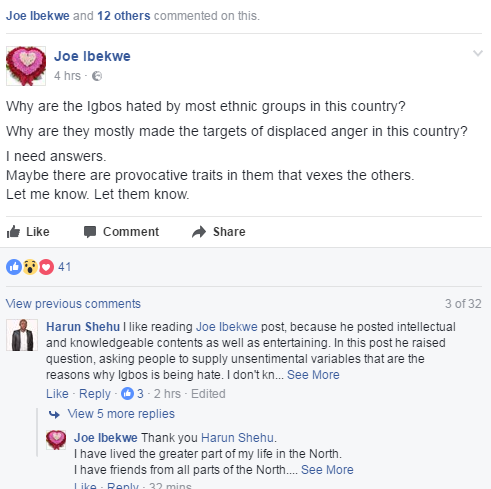


![Image: [Annotated] Cover of Agribusiness Research Paper I got paid to write in December 2013 by a European Union funded NGO based in Holland. It's titled 'Adoption of PC-Based Feed Formulation Methods by Farmers, Feed Manufacturers and Extension Professionals, in South West Nigeria.'](http://tayosolagbade.com/sdnuggets/wp-content/uploads/2015/08/AgribizPDF.png)


